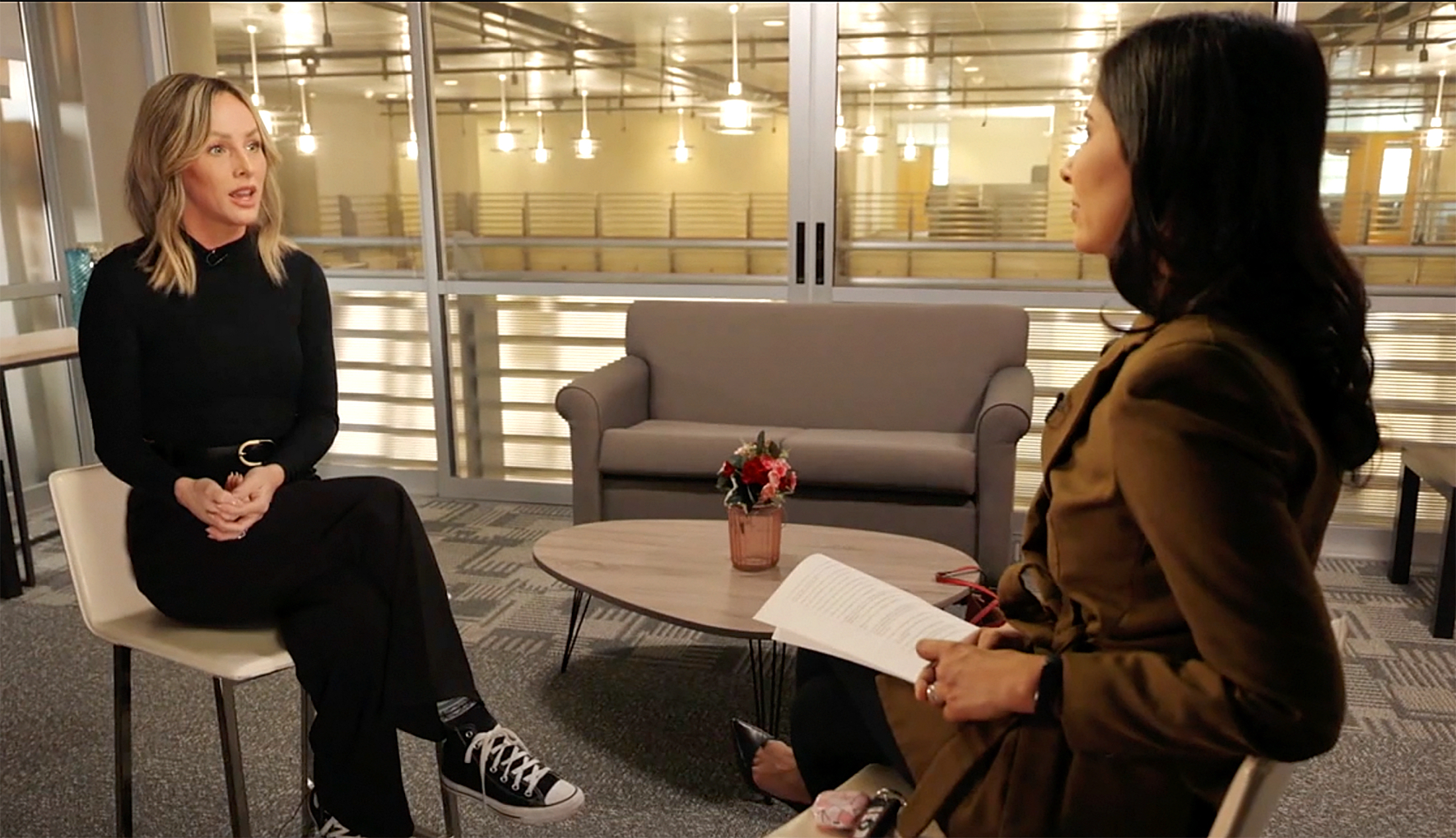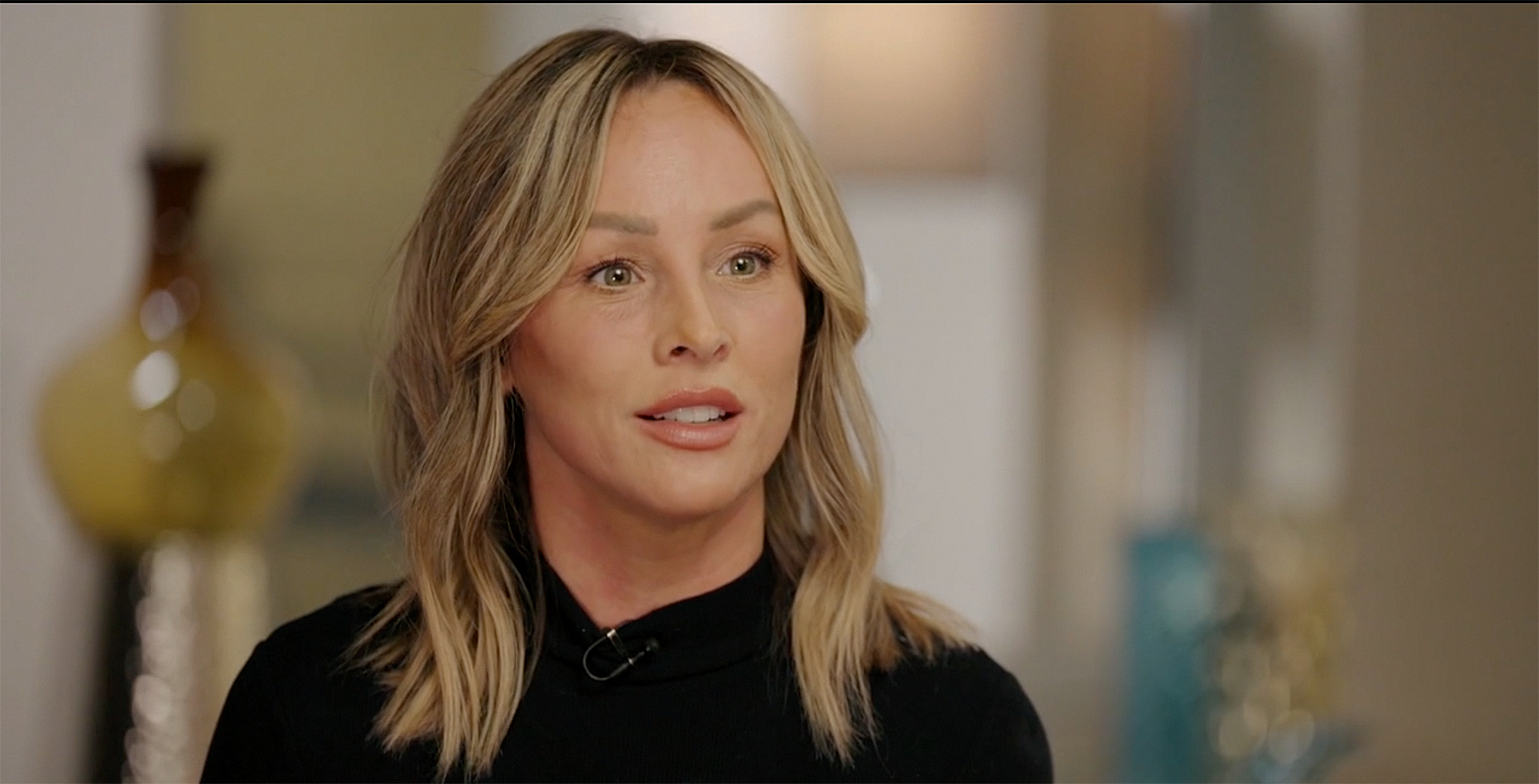'The Bachelorette' alum shares health scare that led her to have breast implants removed
"The Bachelorette" alum Clare Crawley is opening up about the health scare that she says led her to have her breast implants removed.
Crawley, 41, will mark the two-year anniversary of her explant surgery this July.
She told ABC News' Zohreen Shah that she is healthier and happier without her implants, which she said caused her years of health issues.
"It was absolutely exhausting," Crawley said of her health issues as well as her years-long battle to find a diagnosis. "It took its toll on my life, on my relationships, on my family, on my social life."
She continued, "My body was just working overtime and I thought, this is not how it's supposed to be. For somebody who puts as much effort as I do into taking care of my health, this is not how it should look and not how I should feel at this age."

Crawley said she decided to undergo breast augmentation surgery after appearing on "The Bachelor" franchise. She appeared on Juan Pablo Galavis' season of "The Bachelor" in 2014, as well as the first two seasons of "Bachelor in Paradise" and was the lead of "The Bachelorette" in 2020.
Crawley said being in the public eye led to an "insecurity" about her breast size.
"I originally did not have a breast augmentation when I was first on television, on 'The Bachelor,' and I was surrounded by beautiful women," Crawley said. "Having small breasts at the time, for me, made me feel I guess not as feminine, and it created this big insecurity in me."

Once Crawley had the implants put in, she said she pretty immediately felt uncomfortable, both physically and mentally.
"I loved it initially but it affected me in the reverse almost where I started wearing sports bras all the time," she said. "I started covering up more because they felt not my body, obviously they were not, but it felt just huge."
Physically, Crawley said she developed rashes all over her body, which led to her going to different doctors two to three times a month to try to find the cause.
It was a pattern that she said continued for the next eight years as she experienced more and more health issues, which led to more doctors' visits to try to figure out what was wrong.

She said over the years, doctors considered other diagnoses.
"I was diagnosed with everything probably except breast implant illness because that wasn't a thing then," she said. "And I actually asked my doctors pretty far into it, 'Could [my implants] be causing this? This is the only thing that is the constant in my body.'"
Crawley said as she began to do her own research, she came to the conclusion that she may have breast implant illness, a term coined by clinicians and patients to describe symptoms reported by women after breast reconstruction or augmentation using implants, according to the Food and Drug Administration. Breast implant illness is not a formal medical diagnosis and research has remained inconclusive about any association between breast implants and long-term health.
Crawley said she also found a doctor who specializes in breast explant surgeries, which she said was the first time she learned that people choose to remove their breast implants for health-related reasons.
"I thought you take them out because you just don't like them anymore," Crawley said. "Or you take them out because you're switching them out for a different pair."
Crawley said a deciding factor for her was when she went to get a mammogram, only to be told her implants were blocking her breast tissue in the scan, so she would need additional testing.
"I thought, this isn't worth it to me," Crawley recalled. "If you can't even see what's going on in there, take them out."
Crawley underwent breast explant surgery in July 2021, and said she felt lighter in her body immediately.
"I could take the deepest, freshest breath ever," she said. "It was not only physically good, I felt amazing ... I felt like my body was just like, 'Ah, thank you.'"

Crawley said while she feels better and more confident in her body today, she still struggles with lasting side effects that may be from implants in her body, including ongoing rashes.
Although some women have improvement in symptoms after explant surgery, some women report continued complications. The relationship between symptoms and surgery is unclear.
Breast explant surgeries on the rise
Crawley, who got married earlier this year, has shared her health journey publicly on social media, including
She told ABC News she feels it's important for her to share her story to give voice to other women who may be struggling as well.
"It's been able to give me a platform that I could speak to other women and say, 'You also are not crazy. What you're going through, what you're experiencing, you're not alone in that.' There's all these millions of other women who are experiencing the same thing,'" Crawley said. "This has challenged me a lot, but being able to speak up, it's just more affirming of who I am and what I believe in."
In the United States, breast explant surgeries are on the rise, data shows.
In 2020, plastic surgeons removed more than 36,000 breast implant augmentations, an almost 8% increase from the previous year, according to the American Society of Plastic Surgeons.
While that number has grown, breast implant surgery remains one of the top five most popular cosmetic surgeries, a position it's held since 2006, according to the group.
Breast implant illness, the condition that causes some people to get their implants removed, is not a formal diagnosis. The FDA though is now tracking symptoms to investigate a possible association with breast implant illness.
The condition is described by experts as a "diagnosis by exclusion," according to Diana Zuckerman, Ph.D., president of the National Center for Health Research, who has studied the health impact of breast implants for over 30 years.
"Diagnosis by exclusion means that there is no test for it, but there are tests for other things that have the same symptoms or similar symptoms," Zuckerman, who was not involved in Crawley's medical care, told ABC News last year. "And if there is no other reason for this array of symptoms, then there are doctors who will call it breast implant illness."
There are as many as 40 symptoms of breast implant illness, but the most common symptoms include joint and muscle pain, fatigue, memory problems or brain fog, hair loss and difficulty breathing, according to Zuckerman. She said it can take years for breast implants to start causing complications, which makes it more difficult to link complications back to breast implants.
Breast implants may cause damage if they leak in the body, or because they can cause scar tissue to build in the body, according to Zuckerman.
In the U.S., saline-filled and silicone gel-filled are the two types of breast implants approved for use, according to the FDA.
In October, the FDA released new guidelines on breast implants, adding a black box warning and a checklist for doctors and patients about potential side effects.
"The patient must be given the opportunity to initial and sign the patient decision checklist and it must be signed by the physician implanting the device," the FDA noted in its guidelines.







